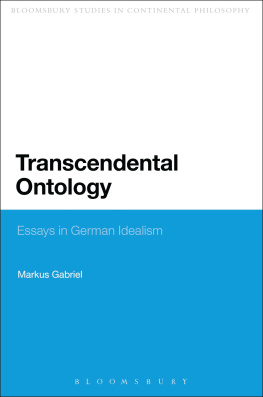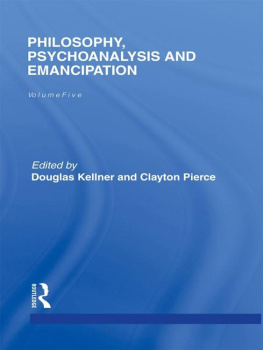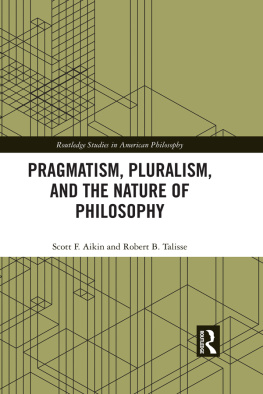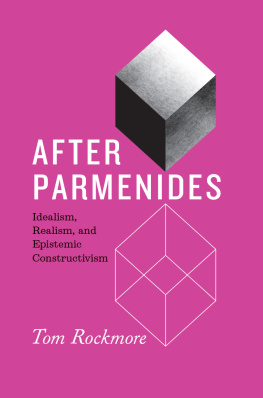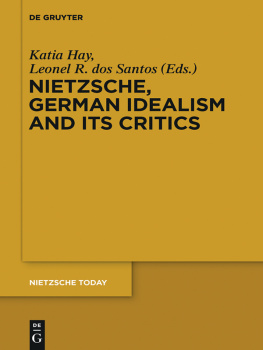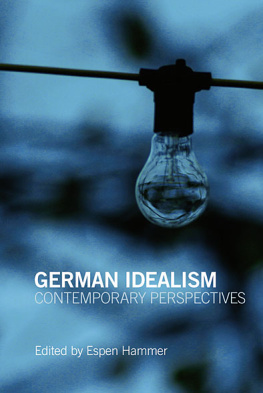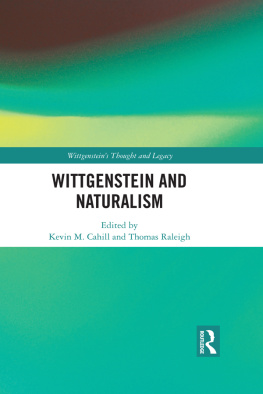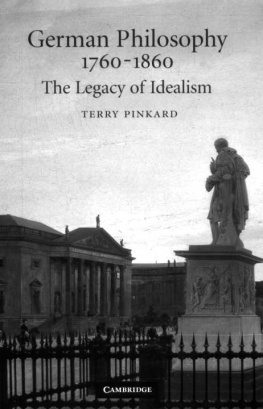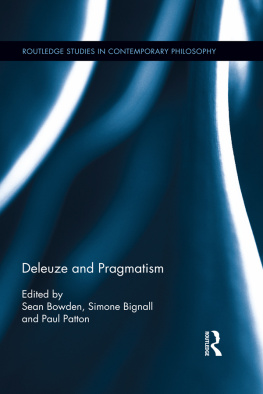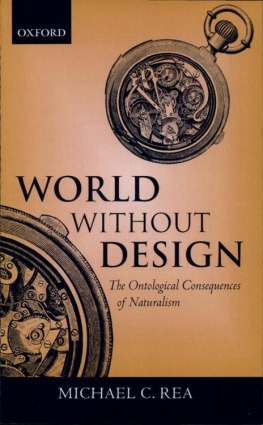Responses to Naturalism
This volume offers critical responses to philosophical naturalism from the perspectives of four different yet fundamentally interconnected philosophical traditions: Kantian idealism, Hegelian idealism, British idealism, and American pragmatism. In bringing these rich perspectives into conversation with each other, the book illuminates the distinctive set of metaphilosophical assumptions underpinning each traditions conception of the relationship between the human and natural sciences. The individual essays investigate the affinities and the divergences between Kant, Hegel, Collingwood, and the American pragmatists in their responses to philosophical naturalism. The ultimate aim of Responses to Naturalism is to help us understand how human beings can be committed to the idea of scientific progress without renouncing their humanistic explanations of the world. It will appeal to scholars interested in the role idealist and pragmatist perspectives play in contemporary debates about naturalism.
Paul Giladi is Senior Lecturer in Philosophy at Manchester Metropolitan University, an affiliate of the UCD Centre for Ethics in Public Life, and an honorary research fellow at the University of Sheffield. He has published numerous articles in leading philosophical journals and edited collections on Hegel, pragmatism, critical social theory, feminism, and Anglo-American philosophy.
Routledge Studies in Contemporary Philosophy
Perception, Cognition and Aesthetics
Edited by Dena Shottenkirk, Manuel Curado and Steven S. Gouveia
Philosophical Perspectives on Moral and Civic Education
Shaping Citizens and Their Schools
Edited by Colin Macleod and Christine Tappolet
Explanation in Action Theory and Historiography
Causal and Teleological Approaches
Edited by Gunnar Schumann
Spatial Senses
Philosophy of Perception in an Age of Science
Edited by Tony Cheng, Ophelia Deroy, and Charles Spence
Transhumanism and Nature
A Critique of Technoscience
Robert Frodeman
Freedom to Care
Liberalism, Dependency Care, and Culture
Asha Bhandary
Moved by Machines
Performance Metaphors and Philosophy of Technology
Mark Coeckelbergh
Responses to Naturalism
Critical Perspectives from Idealism and Pragmatism
Edited by Paul Giladi
For more information about this series, please visit: www.routledge.com/Routledge-Studies-in-Contemporary-Philosophy/book-series/SE0720
Responses to Naturalism
Critical Perspectives From Idealism and Pragmatism
Edited by Paul Giladi

First published 2019
by Routledge
52 Vanderbilt Avenue, New York, NY 10017
and by Routledge
2 Park Square, Milton Park, Abingdon, Oxon OX14 4RN
Routledge is an imprint of the Taylor & Francis Group, an informa business
2020 Taylor & Francis
The right of the editor to be identified as the author of the editorial material, and of the authors for their individual chapters, has been asserted in accordance with sections 77 and 78 of the Copyright, Designs and Patents Act 1988.
All rights reserved. No part of this book may be reprinted or reproduced or utilised in any form or by any electronic, mechanical, or other means, now known or hereafter invented, including photocopying and recording, or in any information storage or retrieval system, without permission in writing from the publishers.
Trademark notice: Product or corporate names may be trademarks or registered trademarks, and are used only for identification and explanation without intent to infringe.
Library of Congress Cataloging-in-Publication Data
A catalog record for this book has been requested
ISBN: 978-1-138-74474-5 (hbk)
ISBN: 978-1-315-18085-4 (ebk)
Typeset in Sabon
by Apex CoVantage, LLC
To two sorely missed colleagues: Lynne Rudder Baker (19442017) & Hilary Putnam (19262016)
Contents
Paul Giladi
Part I
Idealist Responses to Naturalism
Katerina Deligiorgi
Johannes Haag
Paul Giladi
Alexis Papazoglou
Paul Redding
Giuseppina DOro
Part II
Pragmatist Responses to Naturalism
Shannon Dea and Nathan Haydon
Mario De Caro
Gabriele Gava
Willem A. deVries
Steven Levine
David Macarthur
First and foremost, I would like to thank all of the contributors to this volumeShannon Dea and Nathan Haydon, Mario De Caro, Katerina Deligiorgi, Willem A. deVries, Giuseppina DOro, Gabriele Gava, Johannes Haag, Steven Levine, David Macarthur, Alexis Papazoglou, and Paul Reddingfor their hard work and unfailing support throughout work on this edited collection.
Secondly, this volume was made possible in part through the support of a grant from the John Templeton Foundation/the University of Cambridges New Directions in the Study of Mind initiative for the co-investigated project Idealism and the Philosophy of Mind, https://idealismsite.wordpress.com/, which was led by Giuseppina DOro, Alexis Papazoglou, and me. The respective opinions expressed in this collection are those of each project investigator, and do not necessarily reflect the views of the John Templeton Foundation.
Special thanks to Andrew Weckenmann at Routledge for his warm embrace of the project from the beginning; Allie Simmons; and Routledges two diligent readers of the proposal.
My thanks also to all the conference delegates at the Idealism and Metaphilosophy of Mind Conference held in London at Senate House in 2016. I also wish to thank all the participants in the Idealism and Philosophy of Mind Summer School held at Keele University in 2017. Both events were philosophically fruitful and enjoyable, and many of the contributions to this volume were enriched by the discussion at both events.
For help and encouragement along the way on the naturalist, idealist, and pragmatist side of things, I would like to thank Carl Sachs, and my colleagues at University College Dublin during my time there as a teaching and research fellow in philosophy in 20172018. I also want to thank my colleagues at Manchester Metropolitan University for their sustained support of my research here.
Above all, I wish to thank the two special women in my life who are a constant source of joy and wisdom: my mum, Mona, and my partner, Eleanor.
Paul Giladi
I
The Warring Drives
One of the legacies of modernity, typified by significant breakthroughs in natural scientific inquiry, is the way in which philosophys self-imageat least in the Anglo-American analytic traditionhas increasingly become naturalistic. However, the naturalisation of philosophy goes beyond the purely negative and somewhat banal claim that there is no supernatural reality. In other words, the naturalistic transformation of philosophic inquiry involves something more important, more interesting, and more compelling than just a model of ontological taxonomy in which transcendent deities, Jedi Knights, and spooky and occult things, are not included in the inventory of what there is. I think what makes the basic tenet of naturalism important, interesting, and compelling is the complex ways in which it construes that the image of the world provided by the natural sciences as all there is to the world


